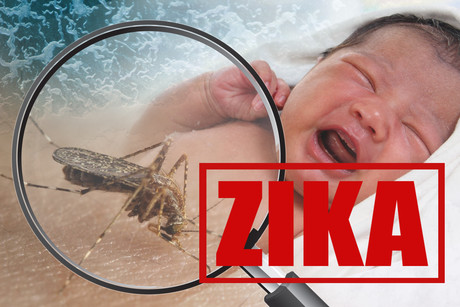Saliva test key to fast Zika diagnosis
Thursday, 24 August, 2017

Researchers have found that saliva can used to accurately detect exposure to the Zika virus.
Blood tests only detect Zika several days after infection. However, using proteomics to examine proteins and peptides in saliva, researchers found they can successfully detect Zika. With 70 countries and territories reporting evidence of mosquito-borne Zika virus transmission, there is an increased need for a rapid and effective test for the virus. This study, published in the ��(���ٸ�), offers a new, quick and cost-effective way to test for the virus.
By analysing the saliva of a pregnant mother infected with Zika and her twins — one born with microcephaly and one without — the researchers were able to pinpoint the specific protein signature for Zika that is present in saliva, creating the potential to use this signature as an effective way to screen for exposure. Led by Walter Siqueira from Western University, Canada, the team of international researchers also discovered important clues about how the virus passes from mother to baby and its role in the development of microcephaly, a birth defect in which a baby’s head and brain are smaller than expected.
The research suggests a vertical transmission of the virus between mother and baby. The mutations in the amino acid sequence of the peptides were different for each twin, suggesting that these mutations may play a role in whether or not a baby will develop microcephaly.
Currently, the uses blood tests to look for changes to RNA in order to diagnose Zika. The drawback to this method is that it is only able to detect the virus up to five to seven days after exposure. Siqueira points out that because the proteins and the peptides that come directly from the virus are more stable than RNA, saliva proteomics can detect the virus far longer after exposure than with the traditional method. In this case, the window of detection was extended to nine months post-infection.
The findings also open new doors for the development of antibody-based diagnostic tests for point-of-care detection. The researchers have received a provisional US patent to develop a simple device that can be used to identify the Zika virus peptides in saliva outside of the laboratory.
“This research has the potential to positively impact global health,” said JDR Editor-in-Chief William Giannobile. “By detecting the virus, the infected individuals can have their symptoms and the virus progression properly monitored, as well as take action to stop the spread of the virus which causes these devastating craniofacial defects in newborns.”
$12m for homegrown heart disease and diabetes innovations
$12 million in federal funding has been announced for the development of new Australian-made...
National cancer screening program marks first in almost 20 years
From 1 July, the National Lung Cancer Screening Program will commence — marking the first...
Doctor deregistered after botched facelift calls for ambulance
A Queensland doctor has been deregistered after a botched cosmetic surgery procedure left a...





